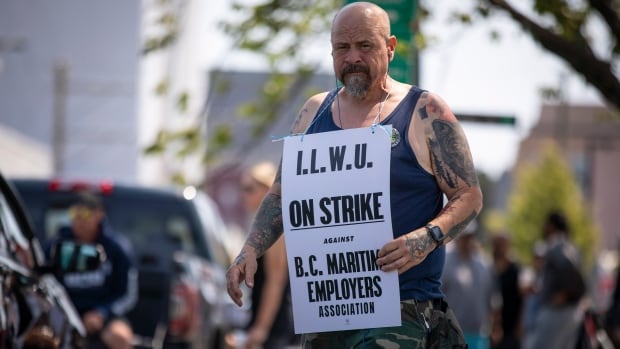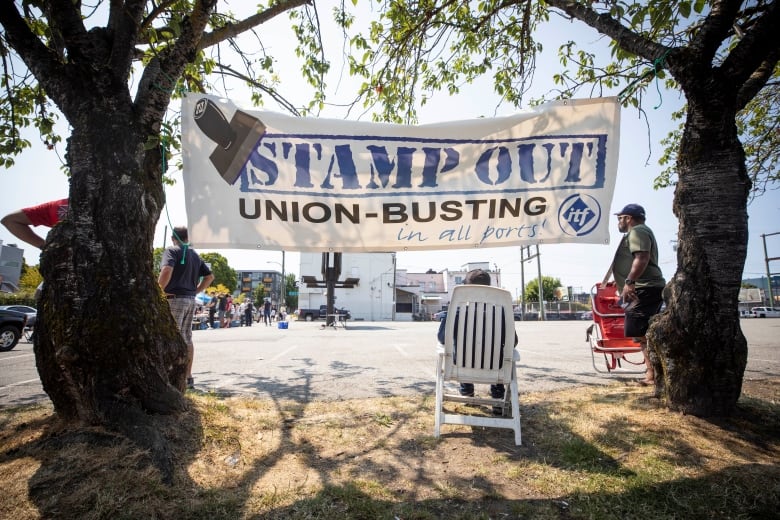
Talks between maritime employers and the union representing British Columbia port workers remain deadlocked over maintenance issues as a strike by the workers enters its fifth day.
Both sides have issued statements singling out a maintenance deal as the reason talks stalled Monday, leaving more than 7,000 workers at 30 ports across B.C. on strike since Saturday morning.
The International Longshore and Warehouse Union Canada says its jurisdiction over maintenance is being eroded by the use of contractors, and the key issue is the refusal of employers to agree to “one sentence” of a maintenance document.
The B.C. Maritime Employers Association, meanwhile, says the union is trying to “aggressively expand” its control of maintenance duties far beyond an agreement that the association says has been “legally well established for decades.”
It says union workers are already unable to fulfil duties they have jurisdiction over, and changing the rules would have “immediate and significant impacts” at ports.

Experts said the strike could cause serious disruptions if it goes on for more than two or three weeks, given the high volume of goods passing through the Port of Vancouver, Canada’s largest port.
“The Port of Vancouver is what I call the gateway to the east. So, product from China, Korea, Taiwan, even some of the products that come into Canada from the West Coast of the U.S. comes in through the Port of Vancouver,” said Fraser Johnson, professor of operations management at Western University’s Ivey Business School.
“The big products would be household and consumer products, things like electronics, fashion appliances, construction materials, cars coming in from Japan and Korea, car parts to be able to service cars at dealerships, equipment and machinery for businesses.”
Business organizations, as well as officials in both Alberta and Saskatchewan, have called on Ottawa to step in and end the strike, but Labour Minister Seamus O’Regan says he wants the union and employers to go back to the negotiating table.